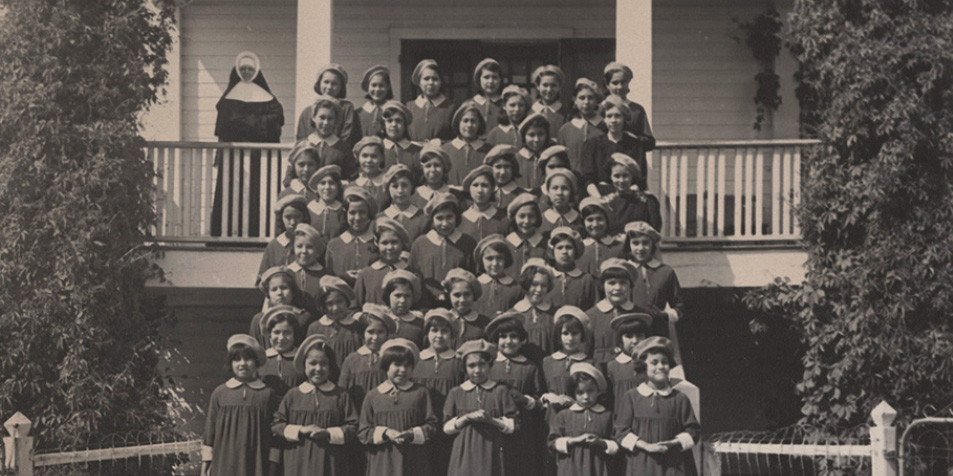Reading for Reconciliation: 6 Books on Residential Schools
To honour and support the Closing Events of the Truth and Reconciliation Commission of Canada (TRC), May 31 - June 3, 2015, in Ottawa, we have...
4 min read
Bob Joseph December 03, 2012

 By Clayton Norris, MBA, CAFM
By Clayton Norris, MBA, CAFM
Vice President, Aboriginal Services, MNP LLP
Canada’s Aboriginal communities have always benefitted from their financially-trained members. But today, the demand for financial understanding and literacy within these communities outweighs the supply. The current and future economic realities facing these communities means that now, perhaps more than ever, there is a real business bottom line rationale for encouraging more local people, especially young people, to seek education in financial management. Beyond the personal professional benefits— of which there are many—increasing these numbers is advantageous for the country’s Aboriginal communities and for the overall Canadian economy. The benefits are truly universal.
To improve the financial education of Canada’s Aboriginal young people we have to begin by looking at the current situation. But coming up with an answer is a little bit tricky as the statistics on Aboriginal people working or educated in financial management are limited and difficult to aggregate. We do know that of the national Aboriginal population, less than one percent are currently working in finance-related fields. The community of more than 300 Certified Aboriginal Financial Managers (CAFM) in Canada represents the huge strides this community has already taken towards improving financial skills. However, a very limited number—likely in the single-digit percentages—of CAFMs have gone on to pursue higher levels of certification to become chartered accountants, certified general accountants, management accountants and chartered financial analysts.
For a long time, we have seen young people pursue careers they felt be of the most immediate benefit to their community, including mirroring those career options—teacher, social worker, RCMP officer—already represented. That has meant a history of Aboriginal people pursuing careers in social development. The country’s First Nation communities have matured beyond these types of critical social issues; now we need community members with greater financial acumen to help make a real difference. In addition to what is going on inside these communities is the project climate across Canada. In the next decade, we are looking at nearly $500 billion worth of major proposed projects, many of which will involve our First Nations communities. Pursuing education that supports them with the financial know-how to help their communities better participate in these projects is the next evolution.
The benefit to communities and young people
Not unlike other Canadian communities, there will always be a need for Aboriginal communities to seek out financial support and advice from external sources. But there are significant benefits for communities who have qualified people internally. Having a community member who understands the whole financial picture and knows the pertinent questions to ask dramatically increases the health and well-being of the community and their ability to be a more significant partner in any size of project.
The right knowledge and experience is only part of the picture. Working with a member of your own community, or a professional with an Aboriginal background, also means working with someone who has a greater appreciation of what your community’s needs and experiences may be. The advantage of working with someone who understands the political and real world realities of doing work in your community is immeasurable.
For the young Aboriginals who pursue this education, financial acumen means options on their career path and a real opportunity to contribute to First Nation communities. Erin Gardener, a young Aboriginal professional at MNP, describes her accounting degree as “an open door.”
“You can work for any company, you can own your own business, you can work for the band or for the government—you can make the career path you choose,” she says. “I also feel that anyone in my position, who was to get a similar professional experience, would be a great leader in the community and be able to give back to where they come from. An increase in education and training would not only open doors for young people, but could have a snowball effect on the communities they come from, increasing everything from employment rates to resource projects and sustainability within communities.”
For many communities, the key to meeting their needs for financial management professionals could be what the Aboriginal Financial Officers Association of Canada (AFOA) has laid out as their “Drive for Five.” This strategy is designed to promote the awareness and participation of young Aboriginal people in the field of professional finance, and it outlines five focus areas that are essential to recruiting the next generation: awareness, interest, engagement, employment and advancement and networking.
The message we need to get out there is how many opportunities really exist, and how unlimited those possibilities are and that you can do something that is exciting and personally fulfilling.
Erin agrees that getting beyond people’s preconceived notions about what accounting or finance entails is crucial. “When people think of accounting, they think it’s just math and numbers, but it’s more than that,” she says. “After a while, you realize that accounting is really about business. The people who have spent time in this profession are business advisors and financial managers. It’s having clients rely on you for help and advice.”
The benefit to business
The true opportunity for Canadian business is represented by that $500 billion worth of proposed resource projects. It is in everyone’s best interest to, in an environmentally conscious and self-sustaining way, have First Nations communities build their economic development and their ability to partner with external business. Taking advantage of this opportunity is going to come from working to ensure that these communities have the financial acumen to understand potential partnerships and how to govern and manage them.
Businesses also benefit from having Aboriginal community members work for them directly. MNP, for example, has 75 individuals across our firm who self-identify as Aboriginal, and many of them work in Aboriginal Services group. Their background in many ways helps us better serve our Aboriginal clients and opens the doors for our participating in partnership projects.
Erin, who grew up in Saskatchewan before spending her teen years living near the Northern B.C. community her mother was from, has already found her common background to be an asset when working with First Nation communities. “It means something for people to feel understood and that their culture and life is inherently respected,” she says.
The trust and understanding required in a professional partnership can be seriously bolstered by having some common ground to stand on.
For businesses looking to support the financial education of young Aboriginals, the next steps are clear. Not just because it means supporting many of the organizations they may already be affiliated with—AFOA, Cando, First Nations Financial Management Board, among others— but because doing so is in many businesses self-interest. The question we are often asked is “How does Canada increase its ability to participate in the world scene?” The answer is by doing everything we can to ensure our resource projects is a success; the answer is supporting financial education in Aboriginal communities.
Canada’s future is in its north; it’s in resource and development—most of which is located in traditional territory or First Nation lands. For business to be successful, these communities must have the tools and resources to participate in projects as full economic partners.
We hope you found this article on improving the financial education of Aboriginal communities interesting.
Sign up for our free, weekly newsletter for more interesting articles.

To honour and support the Closing Events of the Truth and Reconciliation Commission of Canada (TRC), May 31 - June 3, 2015, in Ottawa, we have...

July 30, 2013 - Reno, NV -- In 2004, Laura Ramirez published what was to be an award-winning book and a great source of wisdom and support for...

For parents and teachers, the topic of the Indian Residential Schools system can be a difficult one to tackle - you want to present this aspect of...